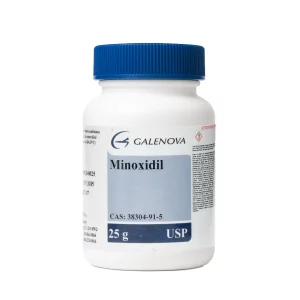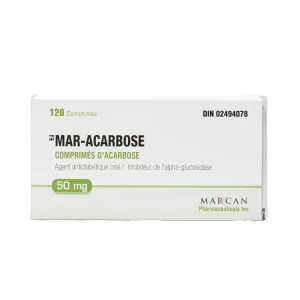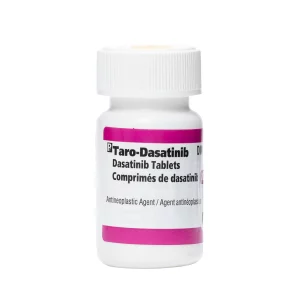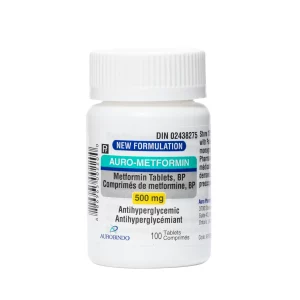Your cart is empty.
Your cart is empty.
Avodart is a medication originally designed for prostate health that has gained attention for its potential in treating male pattern baldness. This powerful hormone-blocking treatment is being studied and used, showing promising results for men seeking to maintain their hair. If you’re exploring Avodart for hair loss options or understanding the Avodart sexual benefits that come with hormonal optimization, you’re in the right place.
We’ll also dive into how it compares to other treatments, and whether it’s effective for hair loss prevention and regrowth. If you’re looking to buy Avodart to boost your daily life, this article will break it all down.
Avodart is the brand name for dutasteride, a medication that belongs to a class called 5-alpha reductase inhibitors. It is FDA-approved for treating benign prostatic hyperplasia (BPH), which is prostate enlargement. The medication works by blocking specific enzymes that convert testosterone into other hormones.
Beyond its approved use, Avodart has gained recognition for its off-label use in hair loss treatment. This is due to its powerful hormone-blocking effects that can help maintain healthier hair follicles.

Male pattern baldness, medically known as androgenetic alopecia, is a genetic condition that affects scalp hair follicles over time. This condition typically follows a predictable pattern of hair loss. It usually starts with a receding hairline and progresses to thinning at the crown of the head.
The main culprit behind this process is DHT (dihydrotestosterone), a hormone that causes hair follicles to shrink. When DHT binds to hair follicles, it causes them to become smaller and weaker. Over time, these miniaturized follicles produce thinner hair, then stop altogether.
Avodart works by inhibiting both 5-alpha reductase Type I and Type II enzymes. These enzymes are responsible for converting testosterone into DHT throughout the body. By blocking both enzyme types, Avodart provides more comprehensive hormone management compared to other treatments.
This dual enzyme blocking leads to a significant reduction in DHT levels. Lower DHT means reduced follicle shrinkage and slower progression of hair loss.

Research shows that dutasteride demonstrates significant effectiveness for treating male pattern baldness. Studies have found that men using dutasteride experienced notable improvements in hair count and density compared to placebo groups. In clinical trials, participants saw an average increase of 12.2 hairs per square centimeter after six months of treatment.
The medication may work more effectively than finasteride for some users due to its broader enzyme-blocking capabilities. While finasteride only blocks one type of enzyme, Avodart blocks both types.
When comparing Avodart to finasteride, the key difference lies in enzyme targeting and potency. Finasteride blocks only 5-alpha reductase Type II, while Avodart blocks both Type I and Type II enzymes. This makes Avodart potentially more effective for comprehensive hair preservation.
Topical minoxidil represents an alternative treatment with a completely different mechanism of action. Minoxidil works by improving blood flow to hair follicles rather than blocking hormones.
The common off-label dosage for hair loss prevention is 0.5 mg taken daily. This is the same dosage used for prostate health, making it a convenient option for men interested in both benefits. Some maintenance regimens use alternate-day dosing once results are achieved.
With advisement, you may adjust dosing based on individual health goals and response to treatment.
Users typically notice reduced hair shedding within 2-3 months of starting treatment. This early improvement often provides motivation to continue with the regimen. Visible hair thickening usually becomes apparent within 6 months of consistent use.
Maximum benefits are generally seen after 12 months of regular treatment. The timeline can vary based on individual factors like age, genetics, and baseline hair condition.
Avodart is considered a maintenance treatment designed for long-term use. The medication provides ongoing hormone management that helps preserve existing hair and may encourage regrowth of recently lost hair. This makes it suitable for men focused on long-term health and appearance optimization.
Hair regrowth achieved with Avodart may reverse if the medication is stopped. This is because the underlying genetic tendency toward hair loss continues even during treatment. The medication manages the hormonal aspect but doesn’t change the genetic predisposition.
Avodart is ideal for men with early-to-moderate male pattern baldness who want to take a proactive approach to hair preservation. The earlier treatment begins, the better the potential for maintaining existing hair and promoting regrowth. This aligns well with longevity-focused health strategies.
Men who did not achieve desired results with finasteride may find Avodart more effective due to its broader enzyme-blocking action. The medication offers an alternative for those seeking more comprehensive DHT management.
When discussing hair loss treatment options, consider asking about DHT testing and your personal hair loss history. Understanding your baseline hormone levels can help determine the most appropriate treatment approach. Family history of hair loss is also important information to share.
Sample questions might include asking about Avodart’s effectiveness compared to other options. Be sure to discuss your personal health goals and expectations for treatment. This helps your chosen expert recommend the most appropriate approach.
Yes, studies show dutasteride (Avodart) reduces hair loss and may increase regrowth by significantly lowering DHT levels.
It blocks both Type I and Type II 5-alpha reductase enzymes, making it potentially more effective than finasteride, which only blocks Type II.
Most users notice improvement within 3-6 months, with full results often seen by 12 months. Initial improvements typically include reduced shedding, followed by visible hair thickening and potential regrowth.
No, it is not FDA-approved for hair loss, but it is commonly prescribed off-label. The medication is approved for prostate health, and may be prescribed for hair loss.
It can manage and slow down hair loss long-term, but results may reverse if treatment stops. The medication provides ongoing hormone management rather than a permanent cure.





Unlock savings on bundles and elevate your online experience today!